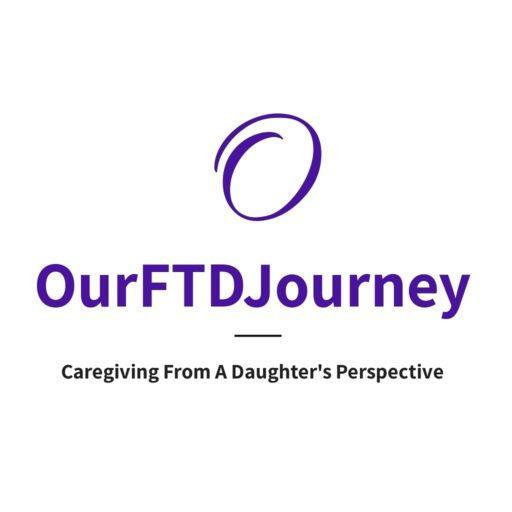Dementia, Caregiving and Thanksgiving (Part 1)

This post may contain affiliate links from Amazon.com, TheWrightStuff.com, flexoffers.com, and CaregiverProducts.com, which means I may recieve commissions if you choose to purchase through links I provide (at no extra cost to you). If you use any of my links, I greatly appreciate it!
Everyone is planning their meals, shopping, and preparing themselves for what they “hope”, will be an amazing Thanksgiving Day!
Meanwhile, the world of Caregiving and Dementia, adds some extra worries, concerns, grief and for some, lonliness.
The holidays are considered a rough time of year for people without caregiving duties. But, few fail to understand the impact the holidays have on us.
People need to understand, DEMENTIA DOES NOT take a day off! Ever! Dementia doesn’t care if it’s Thanksgiving, Christmas, if you’ve lost someone close to you, if it’s your birthday, if you’re sick…It doesn’t matter. The duties are still yours, no matter the circumstances.
Not only do we have concerns about meal planning, food, booze, table settings, etc…we have to worry about how our loved ones will react to all the company and noise. How will people respond to them? What kind of stupid questions or unsolicited advice will we have to endure? How many times will we hear the meaningless & useless, “if you ever need anything…?” Or my favortie one, “don’t forget to take care of yourself.” And can we add, “I just don’t know how you do it!”
And if we are not having company, then we realize, this has become our life. We realize even more that NOT ONLY have our loved ones been abandoned by friends and family, but we have been abandoned, too. This realization can be a shock for many. But, for us seasoned caregivers that have already learned this tough lesson, it comes as no surprise.
And let’s not forget the people who haven’t recieved the diagnosis for their loved ones, yet and have no idea what they could be walking into with the family meal. There are so many things to consider.
As someone who has been caregiving for over 6 years now, I’d like to offer some support…
Your plate is already full. With making sure your Loved One is okay, to staying up late and waking early to cook, take it easy.
It might be worth it to ask people to contribute and bring a dish or dessert.
That’s less mess and clean up for you!
Consider inviting less people.
I would suggest you stand firm on this one. Arguing, yelling, screaming, fist fights, and whatever else can happen can be very upsetting and disturbing to people with dementia. A calm environment is very important. I’m not saying everyone has to be boring and quiet. Have fun! But, make sure everyone behaves or they have to go.
Make sure the ones you invite are willing to genuinely interact with your loved one & include them.
Imagine having dementia, you have a ton of friends and family over and no one is interacting with you. All you’re left to do is go off on your own or listen to everyone talkng and laughing. And let me tell ya, that’s even worse if you suffer from hallucinations and delusions and on top of that you’re paranoid. And why wouldn’t you include them? There’s always a way to include someone. There are several methods of communication.
Have some items of comfort for your loved one (blankets, stuffed doll, whatever they maybe obsessively carry around) in case they get overwhelmed.
Limit booze or eliminate it all together.
This is more for preventive measures to keep things from going crazy. Or simply don’t invite that drunk friend/relative you know is a high risk for being an obnoxious drunk and acting out.
Allow your loved one to be themselves.
Don’t be embarassed by your loved ones actions/potty accidents/inappropriate words or whatever. Crap happens! Sometimes, literally!
If you need to correct a behavior, redirect them. Try to not get upset with them. Remember, they can’t help and control who they are. But, we can help and control who we are and how we react.
If people want to come to your home and they all know your loved one has dementia, they can’t pick and choose what they will be exposed to. If they don’t want to see what dementia really is and how it affects everyone’s life, then they can simply not choose to not come. After all, we live with the things they do daily. So, why shouldn’t they get a glimpse of a day in the life?
Have everything you need to care for your loved ones needs already set up.
Always expect the unexpected. The more prepared you are for these things, the better.
Allow no one disrespect to your loved one.
Human beings are naturally inquizzative. And the truth is, the people asking questions, might be asking before they need information for someone in their own family. I wish I had had someone to ask questions that I now have the answers to, when I was on the hunt to figure out what was wrong with my mom. Because, let’s face it, most doctors don’t have the answers we need when it comes to day to day life.
If it’s just you and your loved one(s)
-
Cook (or order) a few of your favorite foods.
-
Find some cool activites/movies you both (or all – incase you’re caring for more than one) can appreciate.
-
If you’re lonely, feel the pain of the lonliness. But, don’t dwell in it.
-
As bad as it may feel sometimes, being just you and them, take time to figure out what you’re grateful for.
-
Spend some time reminiscing. Even if they may have no memory of the events you might bring up, YOU DO! And who knows? They might surprise you! Wouldn’t that be an amazing gift?! 🙂
-
Know that you’re truly not alone. There are other caregivers in your same position, as well.
-
Go for an outing (if possible). Even if it’s for just a short ride or even a walk
-
Spend as much time as humanly possible with them.
-
If they can still eat, give them something they can enjoy.
-
Talk to them, soothe them, cherish those final moments.
-
Cry with your loved one, laugh with them, hold their hand, tell them any and every imporant thing(s) you need to say.
-
Document your final moments (in whatever way makes you and them comfortable).
Take a short breather if/when you need to. It’s okay if you need to. You’re not made of steel.
If you’re grieving the loss of a loved one
-
Don’t feel obligated to cook. Hand off the task to someone else, if you need to.
-
Set a place at the table for them. They may not be there in the flesh. But, their spirit will always be with you.
-
Have their favorite dish, drink or whatever at the meal.
-
Lean on your friends or family for support.
-
Cry, if you need to. And don’t feel bad about it, if you do.
-
Re-live the funny and crazy memories.
Watch a movie or listen to music they enjoyed
I hope you have found these tips helpful. If you have any you would like to add, let me know!
Remember, no matter what position you’re in, we’re all in this together. As caregivers, it’s important to stand united and support one another. So, if I were to add another tip, it would be seek out another caregiver and offer them support. Invite them over, call them, or go visit them.
Have an amazing Thanksgiving!
Sincerely yours,
Robin and Candace 🙂
 Copyright secured by Digiprove © 2019 Candace Williams
Copyright secured by Digiprove © 2019 Candace Williams 



Reading this I could truly be sitting in a training room being educated on dementia and the way it affects families and caregivers. You’ve truly opened my eyes to things and I will be sure to think more carefully when I am offering my support in future.
Leri,
Thanks so much for your comment! I truly appreciate it. 🙂
Such thoughtful and helpful tips. Thank you for opening your world to us all.
I feel that I’ll turn to this again as a reminder. Often we get so wrapped up in our own worlds we forget.
Thank you again.
Thanks so much for your comment. 🙂
Wow, Candace, you sure are enlightening the world of life as a caregiver specifically
Regarding dementia. You have truly thought through every aspect. This is high quality training for any caregiver to understand what to expect during holidays. I am so proud of you!
WOW, man! Thank you so much! 🙂
Beautifully written Cuz. 😊
Thank you very much! 🙂
You ROCK Candace! Happy Thanksgiving to you, mom and of course your handsome little Bob.
Thank you so much!
Happy Thanksgiving to you too! I hope you have an amazing day!! 🙂